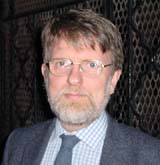Michael Connelly's THE OVERLOOK: Classic crime novel with political insight
At a time when many novels (even good ones) are too long, too self-indulgent, Michael Connelly's THE OVERLOOK (2007) was a delight. Harry Bosch faces a kidnap and murder case with frightening political implications. An innocent woman has been trussed up by blackmailing terrorists while her doctor husband was forced to steal radioactive materials. Are Al Qaeda plotting a radiation attack on Los Angeles? Who can stop them? What means are justified? In taut, clear steps the investigation builds layer upon layer of alarming evidence: the terrorists are about to strike, while the police, the FBI and the local Homeland Security czar jostle for position in the race to stop them. Much lower down the food chain, Harry Bosch, wandering through the case in his own speculative style, manages to pull the whole teetering construction inside out by noting a few insignificant local details -- at which stage the book collapses into an old, simple, true pattern. This gem of a story shows why crime writing, more than most other genres, can expose social realities and illusions. The blindness of paranoid politics in Bush's America is beautifully caught. It's all done with brilliant plotting and lightness of touch: there's no hint of political preaching, no heavy ideological message. Without equating post-9/11 America with Soviet Russia, it might be interesting to compare THE OVERLOOK to a much gloomier story, "An Incident at Krechetovka Station," in Alexander Solzhenitsyn's WE NEVER MAKE MISTAKES. These very different stories show the demands of the individual against the needs of state security. And in their different ways, they show why we need fiction to understand what's going on.

